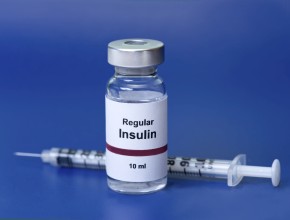All about procalcitonin
The vigor with which procalcitonin (PCT) evaluation is investigated indicates a strong belief in its clinical value. The fact that after multiple studies the verdict is still not there is a sign of difficulties in specifying clinical situations in which the role of PCT assays is important. Below we present a selection of recent data pertaining to the PCT test.
Effectiveness and safety of PCT for reducing mortality in sepsis, severe sepsis, or septic shock
The benefits of using serum PCT measurements in the management of patients with severe form of infections (sepsis, severe sepsis, septic shock) are not clear.
This Cochrane meta-analysis included 10 studies with over 1200 patients. The authors point to the low quality of data (low confidence in their results) showing that at the longest follow-up there was no statistically significant difference in mortality. The estimate of mortality was numerically lower in the PCT versus non-PCT groups (21.6% vs 26.1%). The observed mean time of antibiotics use per person was 1.28 days shorter in the PCT group than in the non-PCT group.
PCT to initiate or discontinue antibiotics in acute respiratory tract infections
This meta-analysis examines data from studies on PCT evaluation in individual patients presenting with a clinical picture of an acute respiratory infection and suggests substantial benefits of PCT testing.
The authors obtained data on over 6700 patients participating in 26 studies. PCT assays were used to guide initiation of antibiotic treatment in the primary care and emergency room or hospital settings and to guide continuation of antibiotics in hospitals, including intensive care units
The probability of death was 8.6% in the PCT group versus 10.0% in the control group (odds ratio [OR], 0.83; 95% CI, 0.70-0.99). The duration of antibiotic use was 5.7 days in the PCT group versus 8.1 days in the control group.
The general conclusion of authors on the use of PCT in acute respiratory infections is favorable but indicates a need to consider local costs and the pattern of antibiotic use.
PCT-guided use of antibiotics for lower respiratory tract infection
Providing PCT test results to clinicians unsure about starting antibiotic therapy in patients who presented to an emergency department (ED) with suspicion of a lower respiratory tract infection had no noticeable beneficial effect.
This study included over 1600 patients admitted to EDs of major medical centers in the United States. There was no difference between PCT and control groups in the mean duration of antibiotic use (4.2 vs 4.3 days by day 30), prescription of antibiotics in the ED (34.1% vs 38.7%), or death (1.9% vs 1.2%).
The authors point out that the majority of patients were ultimately diagnosed with asthma (close to 40%), chronic obstructive pulmonary disease (close to 32%), acute bronchitis (around 25%), and community-acquired pneumonia (only about 20%). They notice also that when adherence to study guidelines (eg, antibiotic use strongly discouraged for PCT levels <0.1 microgram/L and discouraged for levels 0.1-0.25 microgram/L) was not enforced, the compliance with the suggested management was actually far from complete (clinicians adhered to the recommendations in approximately two-thirds of all cases). In addition, the decision not to start antibiotics in the ED could be overruled during follow-up in primary care.
The authors conclude that providing PCT study results together with education about how to interpret the results had no effect in the described setting.
 English
English
 Español
Español
 українська
українська









